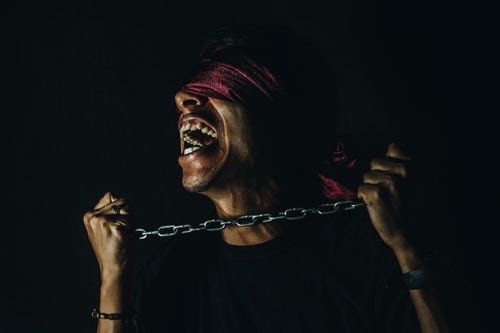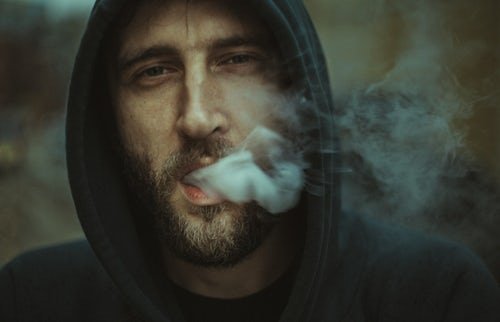One Drug is not the Others: How Broad Categorization Tricks us into Supporting Oppression

"Is there a difference between crack and pot?" I naively asked an adult that when I was six or seven. That guy was no drug warrior and he had probably smoked a joint to two in his time so he answered the question honestly (honestly enough, anyway, he was talking to a six or seven year old, after all) and explained that different drugs do different things and that some of them were much "worse" than others. My lack of knowledge was understandable, of course. I was a child and the only things that I had been taught about drugs were that they are bad and that I should never use them. However, I was not alone in my confusion. Many people have not been taught anything about drugs beyond "just say no," D.A.R.E, or some other equivalent propaganda. Drugs are lumped into broad categories and people are given the impression that they are all the same in their potential to cause destructive effects. This is an inaccurate way to approach the subject. Weed is no more similar to cocaine than aspirin is to Xanax but accuracy is not the goal of drug education. Presenting drugs in a general sense without acknowledging their differences and both their "negative" and "positive" effects (even the legitimately harmful drugs have "positive" effects, otherwise no one would choose to use them) serves a valuable purpose for the authorities who need enough of us to believe their propaganda in order to justify their oppressive actions. If one erases the unique characteristics of a mind altering substance by classifying it as an illegal "drug," it can be more easily demonized because the propagandist no longer has to prove that the specific drug is "dangerous." He or she only has to prove that one drug is hazardous to to justify all prohibition because he or she knows that a large portion of the population is not informed enough to understand that heroin being extremely problematic does mot mean that LSD is equally problematic. That being the case, I think that it is in our interest to take some time to examine how this broad sort of categorization functions to keep us ignorant and to justify authoritarian and anti-freedom policies (both on the subject of drugs and in regards to other issues).
I write about psychedelics, weed, and opposing the drug war pretty frequently (some might say incessantly) and, as a result, I get the occasional response in my comment section that says something like, "but drugs are bad." I usually don't engage with that type of thing because it can be a bit time consuming but if I decide to argue, I ask the commentator to tell me which drugs are bad and by what process they cause their badness to manifest. Often, when I get into those discussions, the opposing individual will begin to list off problematic traits of things like meth and heroin to explain his or her opposition to cannabis and psychedelics. Of course, I don't blame people for this kind of flawed thinking. They absorbed the things that they were taught in schools and by the authorities and this is what they were led to believe is the "truth." When we are "educated" about "drugs" and their "dangers" the educators (in my experience, at least) spend very little time on specifics and never acknowledge any of a particular drug's attractive qualities. That gives people the false impression that all drugs are equally harmful which makes discussing them in an honest and productive way (perhaps, with the hope of changing a person's mind about the subject) much harder to do. The propagandists will say that the information is presented in this way to prevent the material from piquing people's curiosity (it fails quite miserably at that, by the way) but I think that it serves another purpose.

Broadly categorizing illegal "drugs" as "bad" and ignoring the specifics properties of each individual drug functions to confuse people about what they are supporting the prohibition of. The authority can show us a picture of a toothless addict, sleeping on a street corner, and tell us that "drugs" were the cause of that person's problems. Those of us who have not seen beyond the propaganda, come away thinking that any drug is capable of causing those extreme outcomes. When someone approaches the believers and tries to explain why cannabis or psychedelics should be legalized, the believers shut their minds to the idea because they associate all the negative aspects of "drugs" with the specific drug in question, even if there is no real association between the two. They go on supporting policies that criminalize substances when there is no reason to criminalize them. They enable the growth of power of the authority to oppress, rob, imprison, and murder people in the name of "protecting" them from the harm that is said to be caused by "drugs." In short, the broad categories that we are presented with help to trick the believers into supporting the abuse of their friends and neighbors by the systems of authority.
Obviously, blind support for oppressive drug policies enables the systems of authority to impose their will on us because they appear to have a "just cause" in the minds of the believers but their true motives are often far from just. Rich people and poor people use drugs at about the same frequency (regardless of race) but the enforcement of drug laws primarily focuses on low income areas or places with large minority populations. This phenomenon is no accident. The wealthy and those who posses real power do not threaten the systems of authority. Why would they? They thrive under the current systems and it is in their interest for things to remain the same. The poor or groups that are (or, at least, were) oppressed do have a desire to see the system change and, together, they and the other common people outnumber and can threaten the powerful and the wealthy. To prevent us from becoming a problem, the authority uses drug laws (among other things) to suppress our potential to take power. The same principle applies to counterculture movements as well. They can also become a threat to the system and the drug war is used to target those groups (one can look to the Hippies and the government's seemingly sudden interest in persecuting psychedelic users as an example). Unfortunately, the drug enforcement excuse is effective because enough of the population has bought into the anti-drug propaganda and that willingness to believe (I think, anyway) is, in large part, due to our confusion about what it is that individual drugs do. Simply put, it is hard to justify throwing a stoner in jail when population understands that weed doesn't turn people into violent killers or mindless addicts so "They" call it a scary "drug" and to some percentage of the population, that excuses the abusive actions of the authorities.

I decided to focus on drugs and the drug war because those are issues that I am familiar with but the same tactic of broad categorization can be used by authorities, the media, and other propagandists to sway opinions, to divide us, and to fool us into acting against our own interests. "Muslims attacked us," people said after the September 11th incident but they didn't narrow the category down and that broad characterization was used as one of the excuses for invading Iraq which, while being a majority Muslim country, had nothing to do with the attacks. The government and the corporations that it represents used the broad category of a religion to help justify a self-serving military action. "Look at these racists that support Donald Trump" says CNN. There is no doubt that some racists support Trump (the same is true of almost any other political figure, too) but by painting all of his supporters with that brush (and I have seen that done), people are encouraged to divide themselves along political lines and when we are divided, we cannot effectively oppose the oppressive policies of the systems of authority. "Liberals are whiny snowflakes, conservatives are gun toting rednecks, that race is a bunch of killers and thieves, and those people in that country 'hate our freedom'." When we begin to believe statements like those because the propagandists repeat them often enough, actions against those groups, or ideas, or what have you seem to be justified even if those statements are not representative of reality. Drugs being called "drugs" serves as a great example but broad categorizations pose other threats to us all, regardless of what our pet issues might be. If we are not careful to examine the things that are presented to us, we risk falling victim to the forces who wish to mislead us for their own gain.

With drugs, seeing through the lies is easy enough. There are resources that actually provide accurate information about them (erowid.org is great for that) and with their help, we can undo most of the damage that was caused to our understanding by anti-drug propaganda. However, the bigger issue is resisting the general use of broad categorizations by the authorities and other propagandists to mislead us. We have to recognize that few things in this world are cut and dry or black and white. When an authority, the media, or whoever starts presenting us with broad categories and when our acceptance of the validity of those categories benefits the authority, we should question them. Like with drugs, we can do our own research and we can see if the claims live up to reality. If they do not (and they often don't), we can take that as a good reason to be suspicious of those claims. We can choose not to accept the categorization because it has shown itself to be flawed and we can oppose to any action that is designed to address the issues that are associated with the false category. I believe that putting in this little bit of extra effort could potentially prevent us from being duped into supporting a lot of the harmful and oppressive policies that people often unthinkingly follow along with.
Peace.
All of the images in this post are sourced from the free image website unsplash.com.
Curated for #informationwar (by @openparadigm)
Our purpose is to encourage posts discussing Information War, Propaganda, Disinformation and other false narratives. We currently have over 7,500 Steem Power and 20+ people following the curation trail to support our mission.
Join our discord and chat with 250+ fellow Informationwar Activists.
Join our brand new reddit! and start sharing your Steemit posts directly to The_IW, via the share button on your Steemit post!!!
Connect with fellow Informationwar writers in our Roll Call! InformationWar - Leadership/Contributing Writers/Supporters: Roll Call
Ways you can help the @informationwar
Congratulations @artisticscreech! You have completed the following achievement on the Steem blockchain and have been rewarded with new badge(s) :
Click on the badge to view your Board of Honor.
If you no longer want to receive notifications, reply to this comment with the word
STOPDo not miss the last post from @steemitboard:
Drugs are bad except for drugs pushed by big pharma, you're supposed to believe those are good.